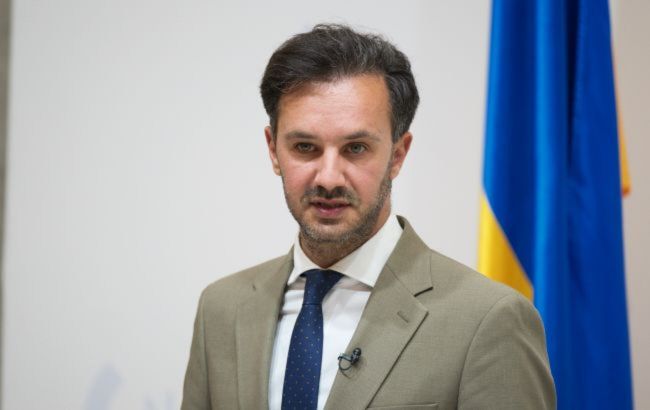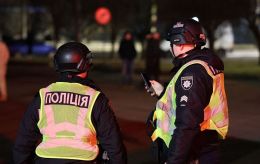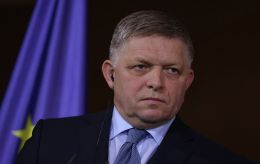Ukraine’s Foreign Ministry hits back at Putin: 'No regional capital taken in 3.5 years of war'
 Photo: Ukraine foreign ministry spokesman Heorhii Tykhyi (Vitalii Nosach, RBC-Ukraine)
Photo: Ukraine foreign ministry spokesman Heorhii Tykhyi (Vitalii Nosach, RBC-Ukraine)
Since the start of the full-scale war, Russia has not captured a single regional capital of Ukraine, while losing more than 1 million troops.
This was stated by Ukraine foreign ministry spokesman Heorhii Tykhyi, according to his post on the social network X.
On Wednesday, Kremlin leader Vladimir Putin said that an acceptable option to end the war could be negotiated "if common sense prevails." Otherwise, he threatened that everything would have to be settled militarily.
In response, Ukraine’s foreign ministry summarized Russia’s so-called "achievements," which look highly questionable in light of the Putin’s threats.
Heorhii Tykhyi noted that as of today Russia has achieved:
- Over 1 million killed and wounded Russian soldiers;
- 1% of captured Ukrainian territory over the past 1000 days, with only 0,3% during the ‘summer offensive’;
- Russia seized 4 Ukrainian administrative centers in 2014, while Ukraine retained control of 23; this figure remains the same today after 3.5 years of full-scale invasion;
- Russia spends $1 billion per day on senseless war while Russian social infrastructure is in tatters and its economy is crumbling.
Summing up, Tykhyi pointed to three conclusions:
"Russia is not winning, and Ukraine is not losing. Russian mothers and ‘Lada’ producers are two real target audiences of Putin’s statement; Pressure on Russia must be seriously increased to force Moscow to get serious about peace process, as Foreign Minister Andrii Sybiha stated today," the spokesman concluded.
Russia's 'long-term peace' demands for Ukraine
About half a day before Putin’s remarks, Russian foreign minister Sergei Lavrov gave an interview in which he outlined conditions that, in his view, would secure a "long-term peace."
Lavrov said that this outcome required recognition and legalization of the new "territorial realities." He specified that this meant Russia’s annexation of Crimea, Donbas, as well as Zaporizhzhia and Kherson regions following so-called "referendums."
He also listed other demands concerning Ukraine’s status:
"Ukraine must have a guaranteed neutral, non-aligned, and non-nuclear status. These conditions were set out in the 1990 Declaration of State Sovereignty of Ukraine, and it was on that basis that Russia and the international community recognized Ukrainian statehood," Lavrov stated.

